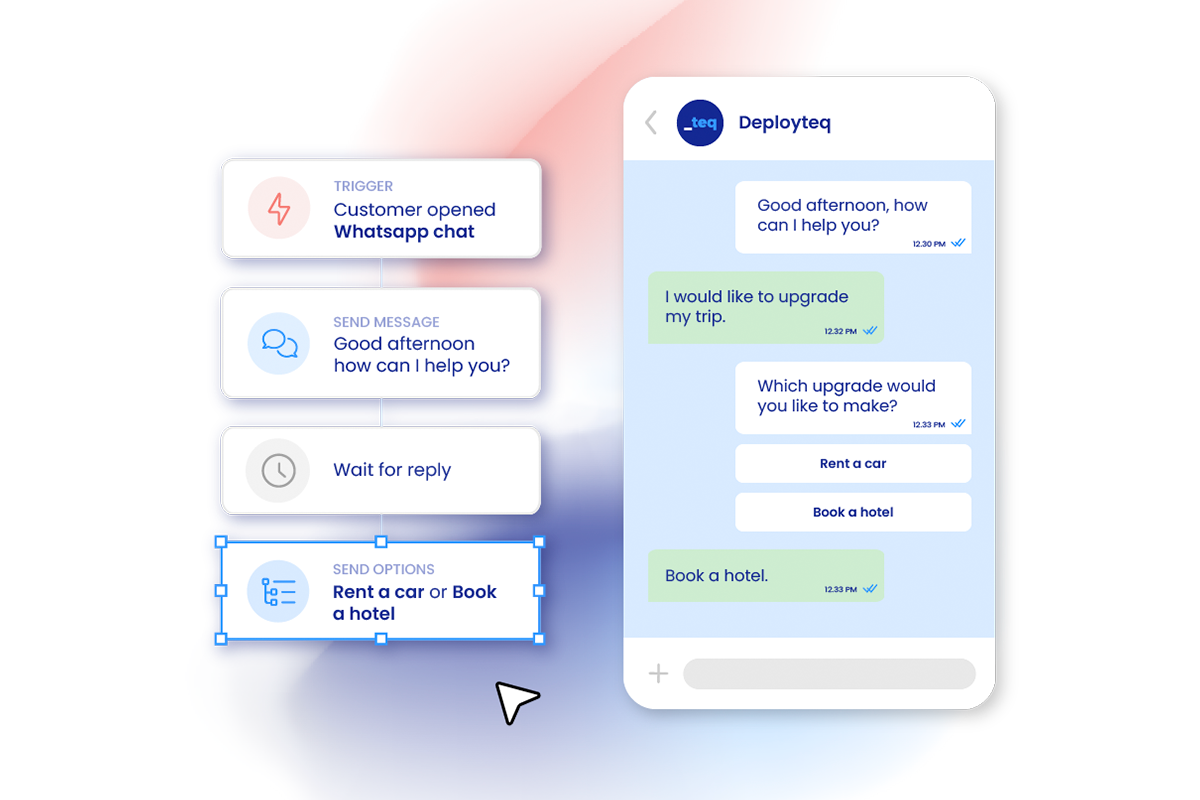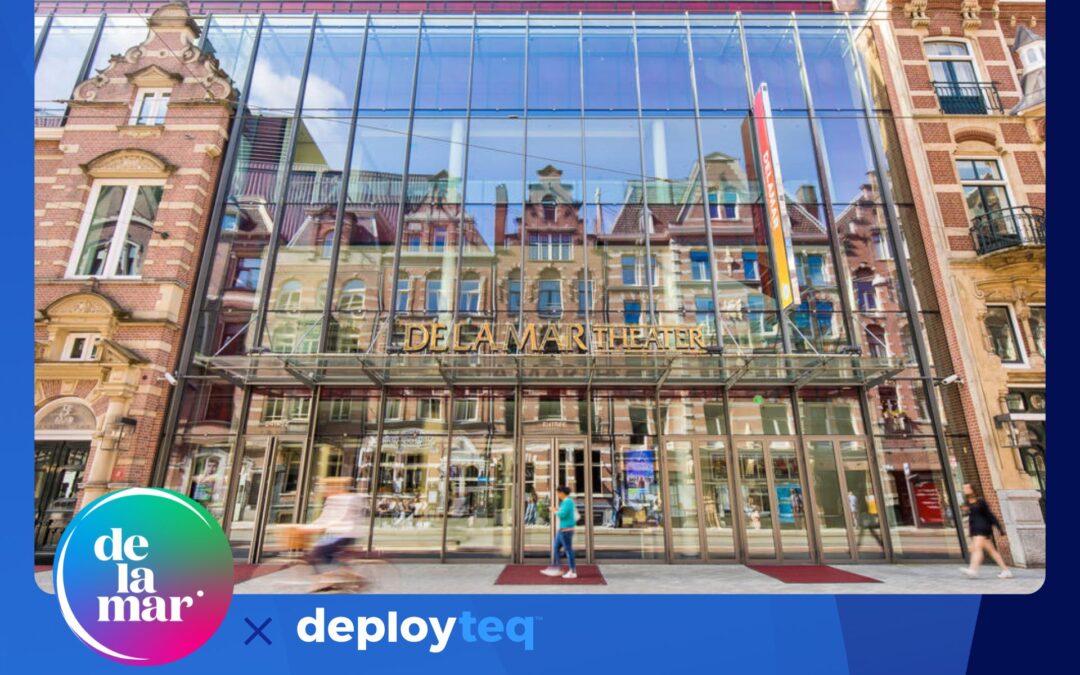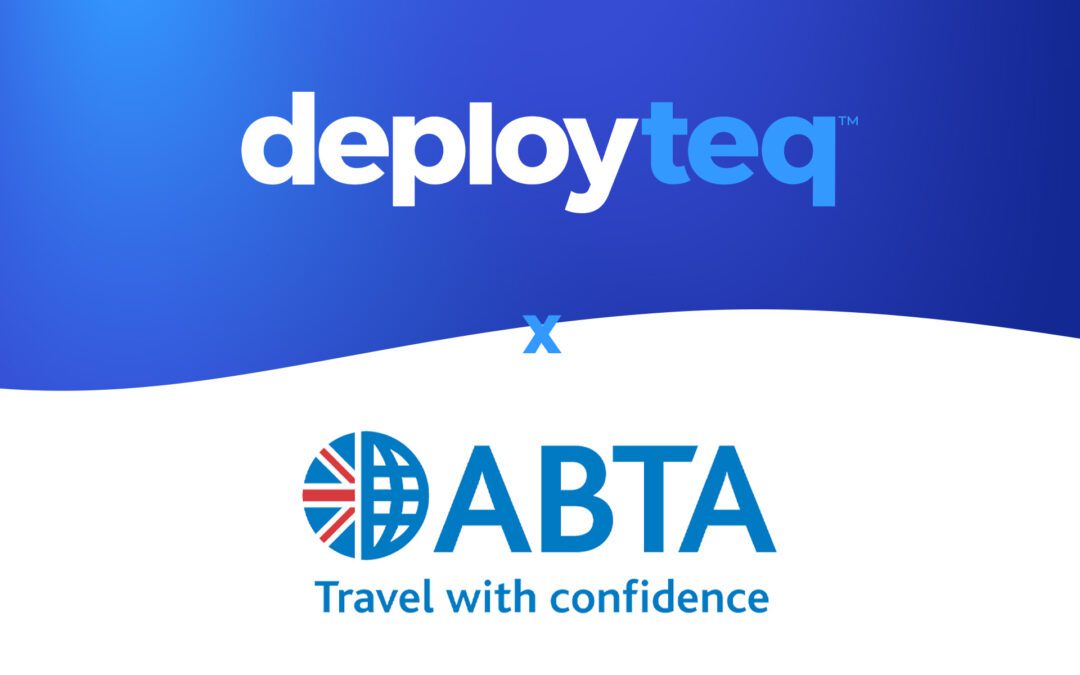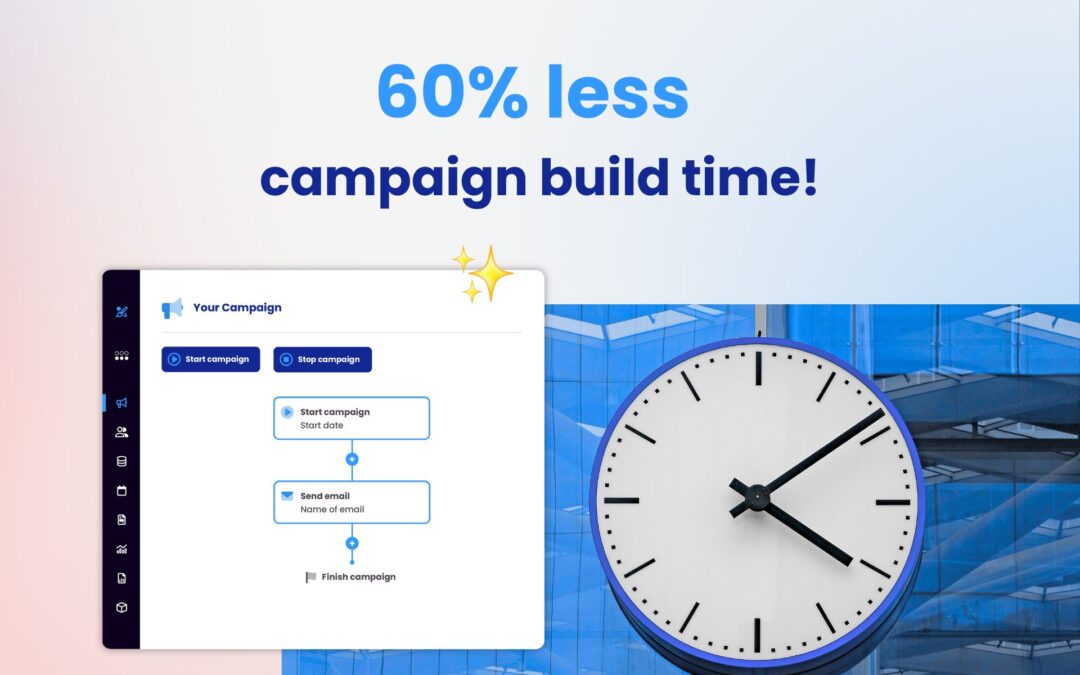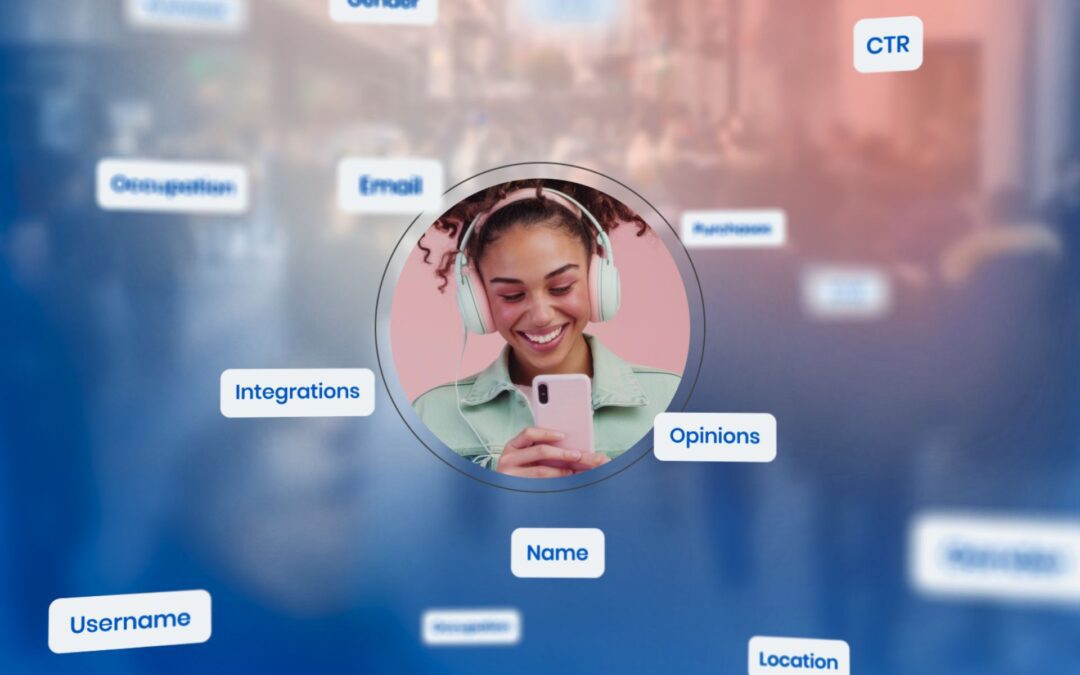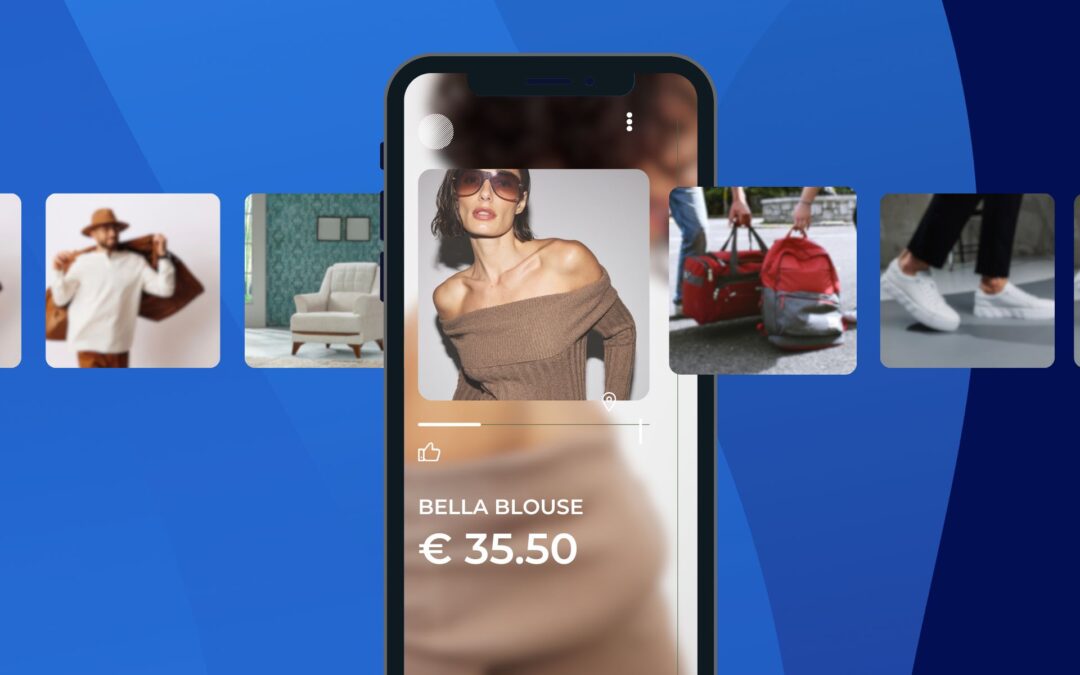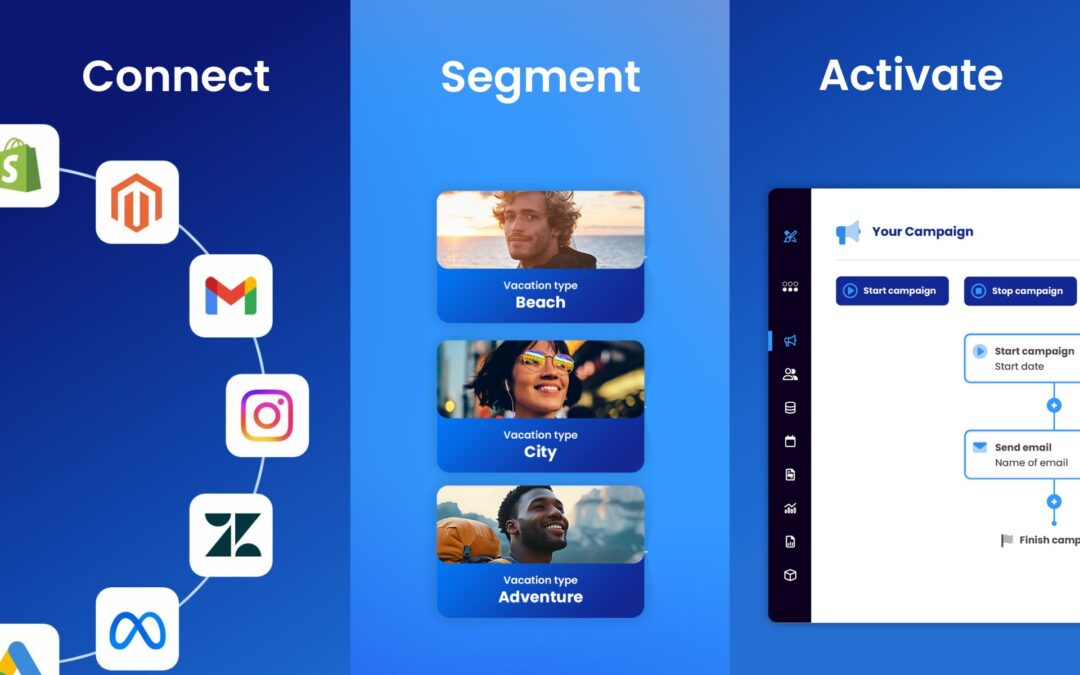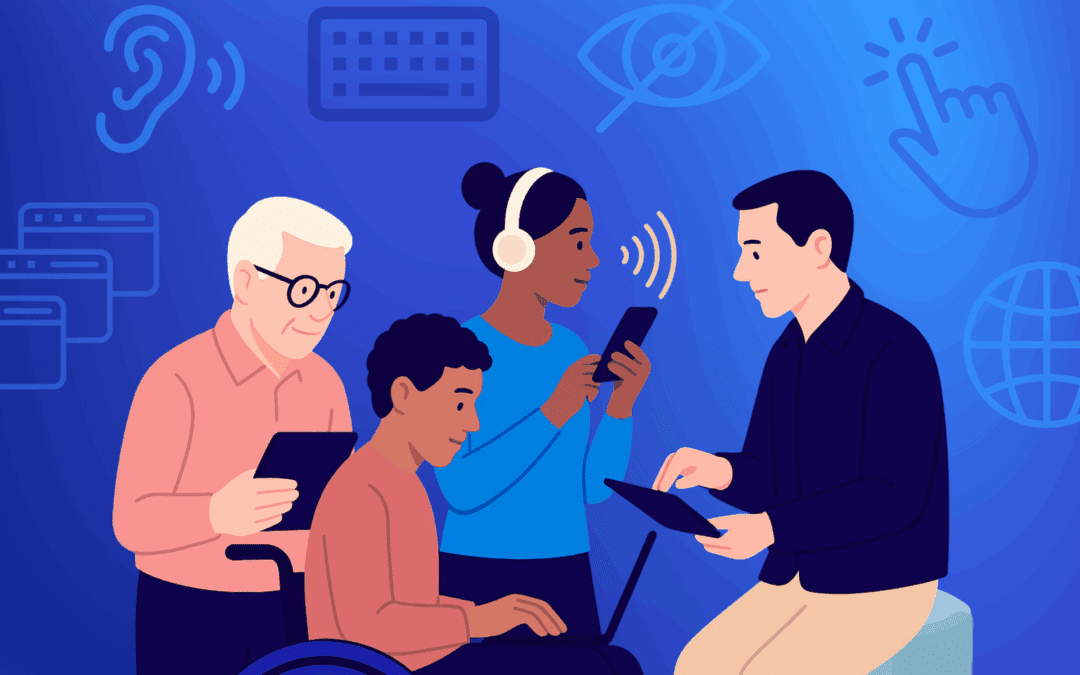In the world of communication, WhatsApp and SMS are central, each with its own advantages. WhatsApp offers extensive functionality and interactive capabilities, while SMS is known for its direct delivery and reliability. The choice between the two channels depends on your company’s specific needs and objectives. But which one can add the most value to you?
At Deployteq, we offer both SMS and WhatsApp solutions for businesses. The communication channels you choose for your business should fit both your needs and those of your audience. WhatsApp and SMS are popular messaging channels with a massive global reach. While the launch of WhatsApp in 2009 certainly impacted SMS traffic, the old, reliable SMS is still popular. In this blog, we highlight the differences between WhatsApp and SMS from a business perspective so you can make an informed decision for your communication strategy.
WhatsApp vs. SMS: Overview
- What is WhatsApp Business?
WhatsApp is the world’s most popular messaging service with over 2 billion active users. People use the app to communicate with friends, family, and increasingly, with businesses. To facilitate business use of WhatsApp, the WhatsApp Business app and the WhatsApp Business API were launched in 2018.
A business WhatsApp account can be used by companies to communicate with customers, providing customer service, sending marketing messages, and more. With a business account, you can use handy features like sorting messages, responding to inquiries in teams, creating a business profile, and automating recurring actions.
- What is SMS?
SMS, or Short Message Service, is one of the oldest messaging services. Launched in the 1980s, SMS allows users to send and receive text messages of up to 160 characters on mobile phones.
This makes it an incredibly useful channel for marketing and customer service. Despite being one of the earliest mobile messaging technologies, SMS remains relevant today due to its potential reach, which extends into the billions.
WhatsApp vs. SMS: Engagement & reach
While both channels enable two-way conversations and technically have an informal nature, we all know that WhatsApp is more conversation-focused. SMS is often used for one-way communication, such as sending updates, codes, or notifications.
WhatsApp usually creates a more personal and informal customer interaction than SMS, leading to higher engagement. It is also faster than SMS in terms of customer response times, helping to build customer relationships and trust, leading to increased customer satisfaction and brand loyalty. However, not everyone uses WhatsApp (or has reliable internet access), so there is a (small) chance you won’t reach your entire audience. SMS has the added advantage of being a native app on nearly all mobile phones, making it a great tool to reach the vast majority of your audience, even those without reliable internet access. There may be international restrictions, depending on your target audience.
WhatsApp is great for having a conversation with your customers, but SMS can do that too. SMS is well known as a significant asset for sending bulk information, but WhatsApp can also handle large volumes. Both channels are evenly matched in terms of functionality and reach. Which channel best suits your business depends on your personal goals and audience preferences.
- Opt-ins
Note: Before you can contact customers via WhatsApp, you must comply with the national regulations of your target audience’s country and have an opt-in from your customers. WhatsApp enforces this consent policy to protect the quality of its services. An opt-in may also be required for SMS messages, depending on national regulations, but they are generally ‘easier’ to send as long as you have your customer’s phone number.
WhatsApp vs. SMS: security
Scammers are unfortunately a threat we all have to consider when communicating with customers. You don’t want your loyal customers to fall victim to criminals impersonating your business or abusing your services.
WhatsApp messages are end-to-end encrypted, meaning the messages are encrypted before they are sent. Only the recipient can read the messages, making it difficult for scammers to access the content. SMS messages are not encrypted, which means they can be intercepted if you don’t take additional security measures.
As a business, you can verify your WhatsApp Business account for authenticity. This helps your customers distinguish your business from potential scammers.
WhatsApp vs. SMS: Which is best for you?
Does WhatsApp Business or SMS best fit your business? The answer depends on your goals, your audience, and the data you have available. WhatsApp Business is a channel more focused on conversation and has higher engagement. It’s ideal for interacting with your customers and building customer relationships and trust. However, it requires that your customers have WhatsApp installed.
SMS is often (unjustly) seen as one-way communication, although it also allows customers to communicate with you. The true strength of SMS lies in its reach. The fact that it is standard on most mobile phones makes it a powerful tool to reach your audience, regardless of internet connection or downloaded apps.
You don’t even have to choose between these two channels. WhatsApp and SMS can complement each other excellently to reach your audience anytime, anywhere. Check out Deployteq’s WhatsApp Business and SMS solutions and feel free to contact one of our experts to discuss the possibilities for your business.
